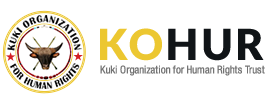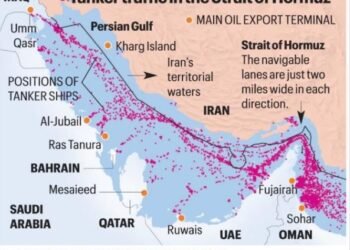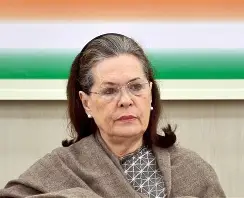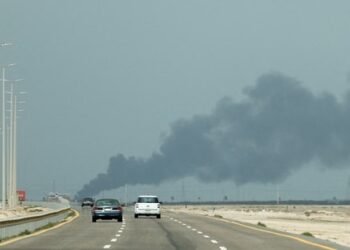KOHUR demands urgent NHRC intervention, accusing the Manipur government of enabling atrocities against the Kuki-Zo tribe and defying prior human rights directives.
BY PC Bureau
May 14, 2025
The Kuki Organization for Human Rights Trust (KOHUR), a member of the UN Special Consultative Status since 2016, has submitted a scathing letter to the National Human Rights Commission (NHRC) on May 14, 2025, highlighting the inaction on gross human rights violations against the Kuki-Zo tribal community in Manipur. Addressed to the NHRC Chairperson in New Delhi, the letter accuses the state government under then Chief Minister N. Biren Singh of complicity in what KOHUR describes as a systematic genocide against the Kuki-Zo people.
Referring to Kohur’s compliant dated October 22, 2024, the Rights body notes that despite a directive from the NHRC issued on March 27, 2025, instructing the Chief Secretary of Manipur to act within seven days, no meaningful action has been taken.
KOHUR alleges that the state government’s inaction not only undermines the NHRC’s authority but also confirms its complicity in the ongoing atrocities. The letter details several harrowing incidents of violence, sexual assault, and systemic marginalization targeting the Kuki-Zo community, largely perpetrated by Meitei Hindu extremists with alleged support from state authorities.
ALSO READ: India Blocks China’s Global Times on X Amid Arunachal Row
Documented Atrocities Against the Kuki-Zo Community
The letter outlines eight specific instances of violence and discrimination:
- Killing of Mr. Tonsing Hangzing in an Ambulance: Tonsing Hangzing was brutally murdered alongside his mother while being transported in an ambulance, a humanitarian vehicle meant to provide safety. KOHUR calls this a grave violation of human rights and international humanitarian law.
- Maiming of BJP MLA Vungzagin Valte: A sitting member of the Manipur Legislative Assembly from the Kuki-Zo community, Vungzagin Valte, was viciously attacked and left critically wounded. KOHUR notes that the attack on an elected representative signals that no Kuki-Zo individual, regardless of position, is safe under the current government.
- Extrajudicial Killing of a Nurse in Churachandpur: Security forces executed a nurse in Churachandpur, undermining the Kuki-Zo community’s trust in state forces meant to protect them. KOHUR argues that the militarization of Manipur has accelerated the genocide.
- Beheading of Mr. David Thiek: In one of the most gruesome acts, David Thiek was murdered, and his head was chopped off, a crime KOHUR describes as medieval brutality meant to terrorize the Kuki-Zo people.
- Naked Parading of a Kuki-Zo Woman: A Kuki-Zo woman was stripped naked and paraded publicly, an act of extreme sexual violence. Despite clear video evidence, justice remains elusive, reflecting a systemic bias shielding Meitei perpetrators.
- Selective Imposition of AFSPA in Meitei-Dominated Areas: The Armed Forces (Special Powers) Act (AFSPA) has been imposed with bias, excluding 13 police station jurisdictions in Meitei-dominated areas, allowing Meitei extremists to operate with impunity while targeting Kuki-Zo communities.
- Targeted Killings in Kangpokpi: The killing of Laigoumang Singsit and the injuring of over 40 people in Kangpokpi under the guise of a “free movement” policy for the Kuki-Zo reveal the state’s disproportionate response and failure to protect civilians.
- Attack on Kuki Women in Saibol Lungtin Subdivision: Over 50 Kuki women were injured by security forces in Kangpokpi’s Saibol Lungtin Subdivision, highlighting the use of violence against unarmed women asserting their rights.
State-Sponsored Genocide and Systemic Marginalization
KOHUR asserts that these incidents are part of a broader campaign of state-sponsored genocide and systemic marginalization of the Kuki-Zo people. The organization identifies four key mechanisms driving this ethnic cleansing:
- Physical Elimination: Targeted killings, beheadings, and mass violence aim to exterminate the Kuki-Zo population.
- Sexual Violence as a Tool of War: Naked parading and other acts of sexual violence are used to degrade and terrorize the community.
- Political Marginalization: Kuki-Zo leaders within the BJP, like Vungzagin Valte, are not safe, indicating a lack of political protection.
- Legal and Institutional Discrimination: The biased imposition of AFSPA and selective law enforcement deny justice to Kuki-Zo victims.
ALSO READ: Trump Doubles Down on Ceasefire Credit and Its ‘Trade’ Link
Urgent Demands to the NHRC
In light of the state’s failure to act, KOHUR has urged the NHRC to take immediate steps, including:
- Conducting a full-scale investigation and field verification of the crimes.
- Directing the Chief Secretary of Manipur to comply with the NHRC’s directive without delay.
- Ensuring the arrest and prosecution of perpetrators involved in the violence.
- Revoking the selective imposition of AFSPA, which shields Meitei extremists.
- Deploying neutral central paramilitary forces to protect Kuki-Zo buffer zones.
- Independently investigating the ethnic cleansing and crimes against humanity in Manipur.
- Taking action against Chief Minister N. Biren Singh for his alleged role in enabling these atrocities.
A Humanitarian Crisis Demanding Action
H.S. Benjamin Mate, Chairman of KOHUR, emphasized the gravity of the situation, stating, “The situation in Manipur has gone far beyond communal conflict—it is now a full-fledged humanitarian and constitutional crisis. The NHRC must not remain a bystander.”
The organization warns that history will judge harshly if silence and inaction prevail, urging the NHRC to intervene to uphold justice, equality, and human rights.













